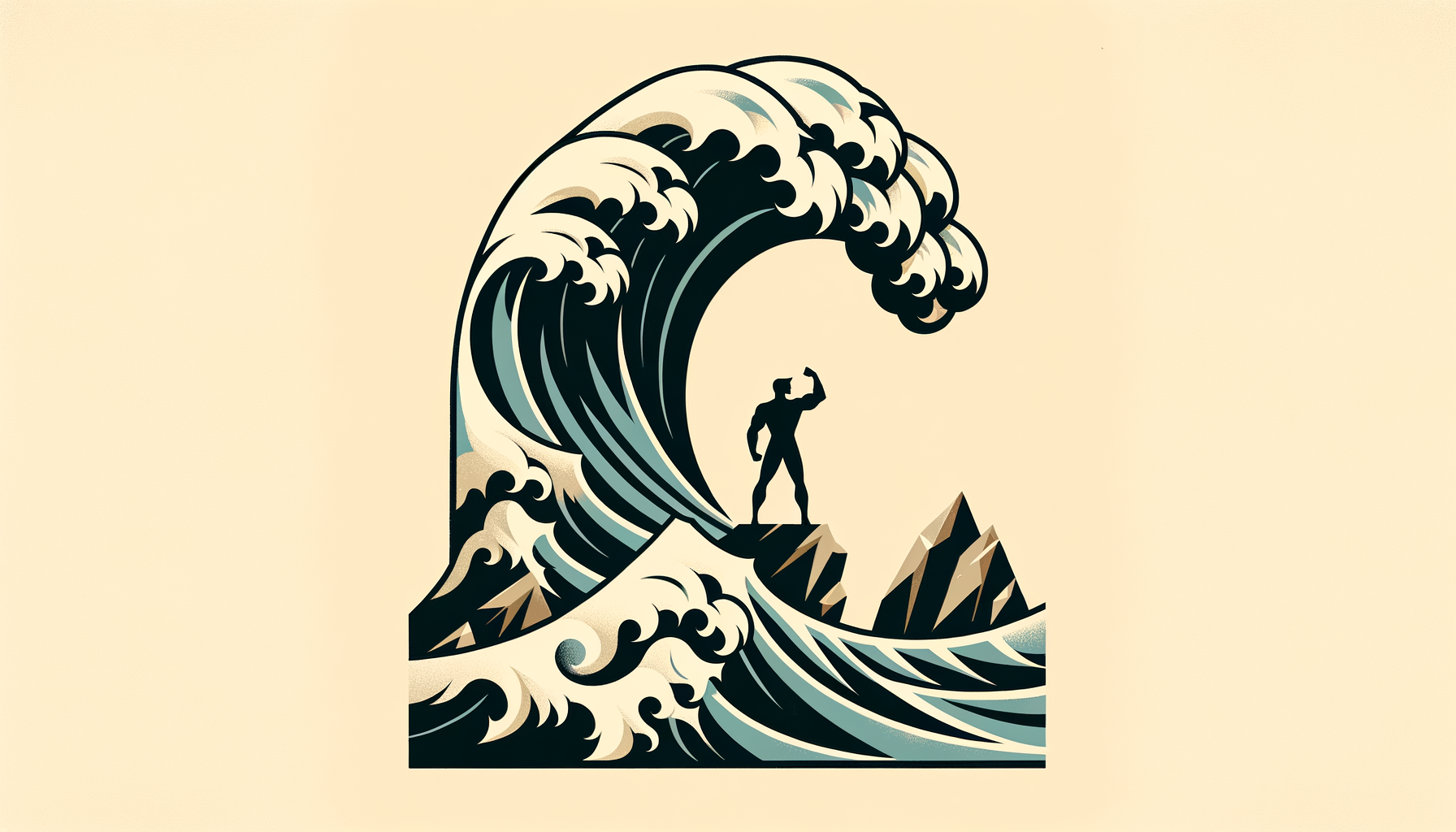The Day I Stopped Letting Fear Call the Shots
Fear Looks Good in Disguise
Let me tell you a little secret about fear: it’s sneaky. It doesn’t barge in like some grand villain in a Marvel movie, cackling and announcing its evil intentions. Oh no, fear gets cozy. It lurks in the everyday choices we make, masquerading as “being careful” or “staying realistic.” For years, I convinced myself I was just practical, not scared.
Here’s an example: I spent most of my twenties avoiding the ocean. I know, I know—who grows up in a coastal town and avoids the waves? Me, apparently. I loved the beach, the breezy cafés, the warm golden hours of sunsets. But the actual ocean? That was a hard no. Something about its vastness, its unpredictability, made it feel alive in a way no amount of sunscreen could protect me from. The idea of swimming out where I couldn’t touch the bottom was my own personal horror movie.
The kicker? I told myself it wasn’t fear. “I’m just... more of a curling-up-with-a-book-on-the-sand person.” Cute, right? Except this avoidance became a metaphor for the other fears quietly dictating my life. Fear of failing at something new. Fear of rejection. Fear of losing control.
And if fear’s your tour guide, let me save you the suspense: it will always lead you down the safest, smallest roads.
The Wake-Up Call
The ocean thing came to a boiling point one summer a few years ago. I was on the beach with my little niece, who was a walking hurricane of confidence and chaos at the ripe old age of six. She loved the water. I mean, loved it. You could tell she felt invincible as she ran headfirst into the waves, only to come sprinting back to shore, soaked, laughing, and entirely fearless.
At one point, she turned to me, hands on her hips like a pint-sized motivational speaker, and said, “Aunt Kaylee, why don’t you come in? It’s FUN.” I froze. I wanted to explain that there were probably sharks or riptides or jellyfish out there. But when you’re explaining irrational fears to a six-year-old, you just end up sounding ridiculous.
“Because I’m boring, I guess,” I muttered. She tilted her head. Then, with the kind of authority no child her size should have, she said, “You’re not boring. You just gotta TRY.”
There it was. The challenge I couldn’t slink away from, issued by someone unafraid to cartwheel into life. Someone who, by the way, depended on me to be at least moderately brave.
Starting Small (and Failing, Spectacularly)
Facing your fears isn’t this grand, cinematic moment where dramatic music swells in the background as you conquer everything at once. It’s messy, awkward, and takes more tries than you think.
I started small. I decided to get into the water—just to my knees. Baby steps, right? Except no one tells you how absolutely humbling it is to be knocked flat by your first wave, coughing and sputtering like you’ve offended Poseidon himself. My niece, of course, thinks this is hilarious. “You gotta JUMP!” she shouted, demonstrating with a wild leap as another wave rolled in.
This is where the first lesson of fear-conquering hit me: you don’t have to look graceful while you’re learning. In fact, you probably won’t. So I stopped trying to look like I had my act together and just jumped with her. Spoiler alert: I got knocked down eight more times. But by the ninth, I caught myself standing my ground. One tiny, wobbly victory.
Fear’s Greatest Weakness: Momentum
Here’s the thing about fear—it’s really good at holding you in place, but it runs out of power as soon as you take action. The more I kept going into the waves, the less intimidating they felt. Before long, I managed to wade deeper and float past the break. This huge, open space that used to terrify me? Suddenly, it felt... freeing.
One day, I finally realized why I’d been scared. The unpredictability of water mirrored everything else I’d avoided. Rejection, failure, change—all of it reminded me of the ocean’s ability to pull the ground out from under you. But learning to navigate the water didn’t erase my fear. It simply reminded me that I could handle what came next.
And spoiler: life is a lot like the ocean. It will toss you around, push you to your limits, and then lull you into a peaceful calm that makes it all worth it.
Facing Fear in Everyday Life
After the waves, I started noticing how fear crept into other areas of my life. The times I wouldn’t pitch a new idea because I thought my voice wasn’t important enough. The moments I’d stay silent in conflict because it felt safer to let people assume I agreed. Even in relationships, I’d worry so much about imperfections (mine, theirs, or some perfect mix of both), I’d keep people at arm’s length.
But once you start calling fear out for what it is, something magical happens. You build courage in layers. It doesn’t mean you stop being scared; you just get better at standing up when fear knocks you down.
Here’s what worked for me—adapt it to your own ocean, whatever that looks like:
1. Start Uncomfortably Small.
It doesn’t matter if your first steps feel laughably small. You’re rewiring your brain to stop running at the first flicker of discomfort. Maybe start that tough conversation. Sign up for that class you’ve been putting off.
2. Learn to Laugh at Yourself.
Humor makes fear a little less intimidating. Whether it’s stumbling through the ocean or delivering your first terrible karaoke performance, you’ll survive. Bonus: laughing turns mistakes into stories, not regrets.
3. Celebrate the Wins, No Matter How Tiny.
That first baby wave I stood in? It wasn’t just water; it was proof I didn’t have to let fear chaperone my life. Now, I mark every “wave” moment, big or small—a reminder that I’m braver than I think.
The Fear I Conquered (and What I Gained)
Looking back, letting fear dictate my life was like canceling every party because you’re worried it might rain. Sure, avoiding risk might protect you from a little discomfort. But it also keeps you from the joy, connection, and wild, glorious memories waiting just beyond your comfort zone.
My niece, by the way, still thinks it’s hilarious that she was the one to drag me into the ocean that day. And she’s not wrong—sometimes, the bravest thing we can do is take a lesson from someone a third of our age and dive in, even when we’re sure we’ll mess it up.
The best part? Conquering that fear didn’t just make the ocean less scary. It made life a lot bigger. And the more you do the hard, wobbly, beautiful thing instead of staying safely on the shore, the bigger yours will feel, too.




















